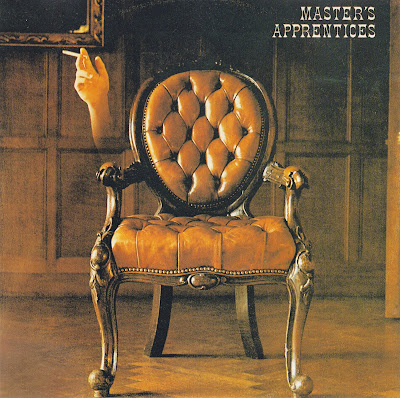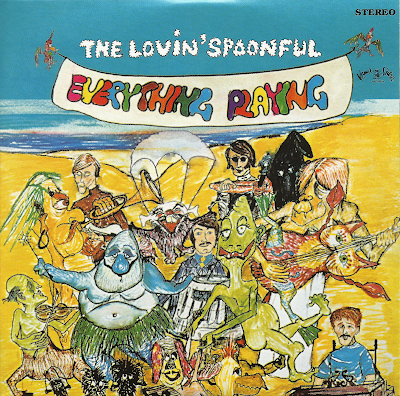 genre: country genre: country
state: uk
quality: lossless (flac, cue, log, 205 mb)
time: 34'01"
"Ol' '55" (Tom Waits)
"I Don't Wanna Talk About It" (Danny Whitten)
"A Wailing Goodbye" (Ian Matthews)
"Keep On Sailing" (Ian Matthews)
"Tried So Hard" (Gene Clark)
"Dirty Work" (Donald Fagen, Walter Becker)
"Do I Still Figure in Your Life" (Pete Dello)
"Home" (Ian Matthews)
"Biloxi" (Jesse Winchester)
"The Fault" (Ian Matthews)
Ian Matthews - acoustic guitar, vocals
Jeff "Skunk" Baxter - electric guitar, pedal steel guitar
David Lindley - lap steel guitar
B. J. Cole - pedal steel guitar
David Barry - organ, piano, keyboards
Billy Graham - bass, fiddle
Andy Roberts - acoustic guitar
Timi Donald - drums
Robert Warford - electric guitar
Joel Tepp - acoustic guitar, harmonica
Michael Fonfara - piano, keyboards
Lyn Dobson - saxophone
Al Garth - alto saxophone
Jay Lacy - electric guitar
Danny Lane - drums
Willie Leacox - drums
Danny Weis - acoustic guitar
Steve Gillette - acoustic guitar
David Dickey - bass
...
Read more »
|
 genre: heavy psych genre: heavy psych
state: australia
quality: lossless (flac, cue, log, covers, 209 mb)
time: 37'11"
misc.: comilation of '66-'69 recordings
wikipedia:
... Just before the start of recording, Keays made a trip to mainland Europe, and was in Copenhagen when he heard of the death of Jimi Hendrix, one of his idols. Back in London, Ford and Keays penned "Song for a Lost Gypsy", which they added to their songlist. The band entered the studio in September to record Choice Cuts. The staff and facilities were superior to those in Australia, which allowed a greater range of expression. The songs they brought to the sessions—many written during the voyage—were original and distinctive, distilling their recent musical influences. This included the heavier sounds of Hendrix, King Crimson and Free, as well as the acoustic styles of Donovan, the Small Faces and Van Morrison (whose Astral Weeks LP was on constant rotation at their North Harrow house). They brought in outside musicians to augment some tracks, and made use of Paul McCartney's white grand piano on a few cuts, including "Because I Love You". During sessions they bumped into a Who's Who of UK music: The Moody Blues, Pink Floyd, Barclay James Harvest, Ringo Starr and Roy Harper. Towards the end of recording, they found themselves one song short of the optimum LP length, so at Jarratt's suggestion they wrote a new song, built up from a Latin-flavoured instrumental shuffle that Ford had been playing with. Keays wrote lyrics for the piece overnight, they cut it the next day and it became the album's opening track "Rio de Camero".
...
Read more »
|
 genre: soul, funk genre: soul, funk
state: us
quality: mp3 (320k, covers, 95 mb)
time: 31'13"
misc.: comilation of '66-'69 recordings
wikipedia:
The group began as The Royal Spades and had tried unsuccessfully to get a record made for the local Satellite Records even though tenor sax player Charles "Packy" Axton's mother and uncle owned that label. When they were finally able to get a record made, Axton's mother Estelle Axton convinced the group to change their name and they chose The Mar-Keys.
They also recorded organ and saxophone oriented singles of their own, scoring a number-three hit nationally with "Last Night" in 1961. It sold over one million copies, earning gold disc recognition. Keyboards were played by Jerry Lee "Smoochy" Smith. Other singles of theirs from the early 1960s include "Philly Dog" and "Popeye Stroll." Members of this rhythm section later formed other nationally prominent Memphis studio session groups, including the Memphis Horns, the Packers, and Booker T. & the M.G.'s. Each of these offshoot groups also recorded popular instrumental albums of their own, in addition to serving as the backing band on albums by dozens of rock, R&B, and soul music stars on Stax, Volt and other national labels. In the second half of the 1960s, the Mar-Keys name was used whenever the three members of the Memphis Horns teamed with Booker T & the MGs in live performances. (The two groups shared billing on a live album in 1967, Back to Back, from a concert in Paris.) The legacy of the Mar-Keys and later groups was that of having been key players in the development of soul music styles like Southern soul and Memphis soul.
The Mar-Keys recently[when?] regrouped with a lineup consisting of former M.G. Lewis Steinberg, original members Floyd Newman, Smoochie Smith, Don Nix, Terry Johnson and Wayne Jackson and original member Packy Axton's son Chuck
...
Read more »
|
 genre: beat genre: beat
state: uk
quality: lossless (ape, cue, log, covers, 298 mb)
time: 1:07'54"
misc.: compilation of '66-'69 recordings
AllMusic:
Mannerisms may be expensive and difficult to find, but it's the place to start collecting Manfred Mann's post-EMI material. The compilation was originally issued in 1976, containing a dozen A-sides and notable album tracks, and it was decent as far as it went, filling in a few holes and re-exposing some worthwhile album tracks. What will surprise many listeners (especially Americans, who may well never have heard of, much less heard, these sides) is how late Manfred Mann embraced the basic British Invasion sound, well into 1967, and also how good a psychedelic band they were.
...
Read more »
|
 genre: pop, folk genre: pop, folk
state: us
quality: lossless (flac, cue, log, covers, 275 mb)
time: 41'39"
wikipedia:
Everything Playing was the first album featuring guitarist Jerry Yester (who replaced Zal Yanovsky) and the last commercial album as a quartet; principal songwriter and lead singer John Sebastian would leave the group in June 1968 for a solo career. This album also features the only known track to feature bassist Steve Boone on lead vocal: "Priscilla Millionaira".
Three of the songs made the Top 40: "Six O'Clock," "She Is Still a Mystery," and "Money".
In his Allmusic review, music critic William Ruhlman wrote of the album "When Sebastian wasn't at the mic, the singing could be mediocre, and the group was often all over the map in its attempt at musical sophistication, but the record was saved by Sebastian's writing and singing".
...
Read more »
|
 genre: beat, garage genre: beat, garage
state: us
quality: lossless (flac, cue, log, covers, 231 mb)
time: 38'21"
wikipedia:
The Kingsmen's sixth album represented a departure from previous efforts with new producers and a revamped line-up. Barry Curtis had been drafted and Norm Sundholm left to manage his Sunn amplifiers business. Their respective replacements were J.C. Rieck on keyboards with Kerry Magness (replaced in 1967 by Pete Borg) on bass. Also new to the team were producers Paul Tannen and Mark Wildey.
The track list features a combination of reliable pop and R&B standards mixed with songs written by group members. This was the first Kingsmen album not to make the Billboard LP chart - an indication of the group's waning popularity as musical tastes changed in the mid-60s.
...
Read more »
|
|








